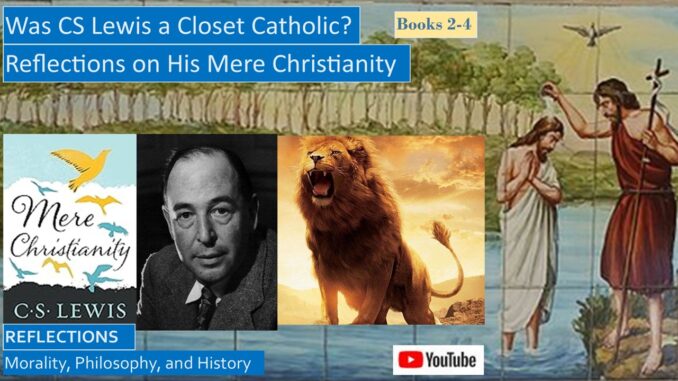
Since his Mere Christianity is endorsed by Christians of most denominations, we must ask: Was CS Lewis a Closet Catholic?
Which of his writings are clearly inspired by St Augustine or other early Church Fathers? What about the allegories in his Chronicles of Narnia?
How does he seek to avoid quarrels over doctrinal questions between Christians?
What are the Christian arguments against Dualism?
YouTube video for this reflection: https://youtu.be/ksWomcEg8C0
We preceded this with a reflection of CS Lewis’ discussion of England’s struggle against the evil Nazi regime, and whether he foreshadowed the issues in the following Vatican II Council. Next, we will reflect on the possible influences of the teachings of the Early Church Fathers on Good Friday, Easter, and the Trinity in Mere Christianity.
Facing the Nazi Menace: CS Lewis’ Mere Christianity and Viktor Frankl’s Memoirs on Auschwitz, Books 1-4
https://seekingvirtueandwisdom.com/facing-the-nazi-menace-cs-lewis-mere-christianity-and-viktor-frankls-mans-search-for-meaning/
https://youtu.be/x-9FeH9Gyng
Preparing the Way for Vatican II: CS Lewis’ Mere Christianity, Books 1-4
https://seekingvirtueandwisdom.com/preparing-the-way-for-vatican-ii-cs-lewis-mere-christianity/
https://youtu.be/udJQzmqst34
Good Friday, Easter, and Trinity: CS Lewis’ Mere Christianity, Narnia, & St Augustine’s Confessions, Books 1-4
https://seekingvirtueandwisdom.com/good-friday-easter-and-trinity-cs-lewis-mere-christianity-narnia-st-augustines-confessions/
https://youtu.be/c71ygBqvPoY
WAS CS LEWIS A CLOSET CATHOLIC?
CS Lewis is the only theologian whose works are enthusiastically accepted by Protestants, Catholics, and Orthodox Christians. This universal acceptance is because CS Lewis wished to encourage all Christians to lead a godly life, he avoided the debates surrounding which Christian sect possessed the secrets of salvation. As a youngster, he was fascinated by Norse and Greek mythology, which helped people his imaginary world of Narnia. He excelled academically, becoming a professor specializing in Medieval and Renaissance Literature. His writings attest to his immersion in the works of ancient Greeks and Romans, and the early Church Fathers. Perhaps this influenced his organizing Mere Christianity into Books and Chapters, as was the practice in many ancient works, including St Augustine’s Confessions.
Summary of St Augustine’s Confessions of Faith and Repentance
https://seekingvirtueandwisdom.com/summary-of-st-augustines-confessions-of-faith-and-repentance/
https://youtu.be/sIpx5qJMGvw
Like St Augustine in his Confessions, CS Lewis’ Mere Christianity addresses many of the concerns and cultural deceits that CS Lewis had that led him towards his flirtation with atheism. His friendship with the Catholic JRR Tolkien influenced his conversion back to Christianity, as did the works of the Scottish Protestant George MacDonald and the Catholic GK Chesterton. His first work after conversion in the early 1930s, The Pilgrim’s Regress, a retelling of the Protestant John Bunyan’s Pilgrims Progress, didn’t sell well. The Chronicles of Narnia is his most popular book, selling over a hundred million copies in over forty languages.[1]
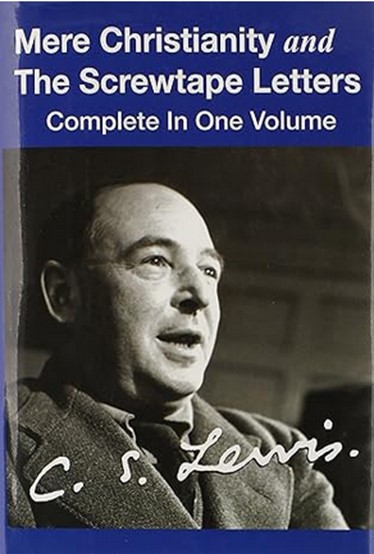
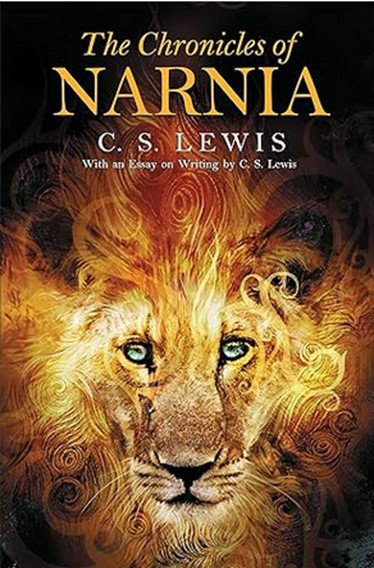
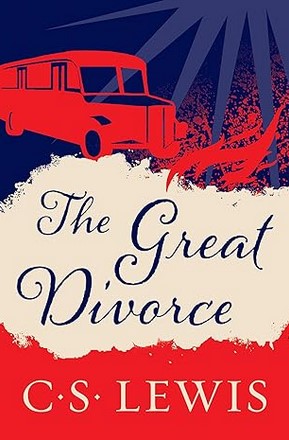
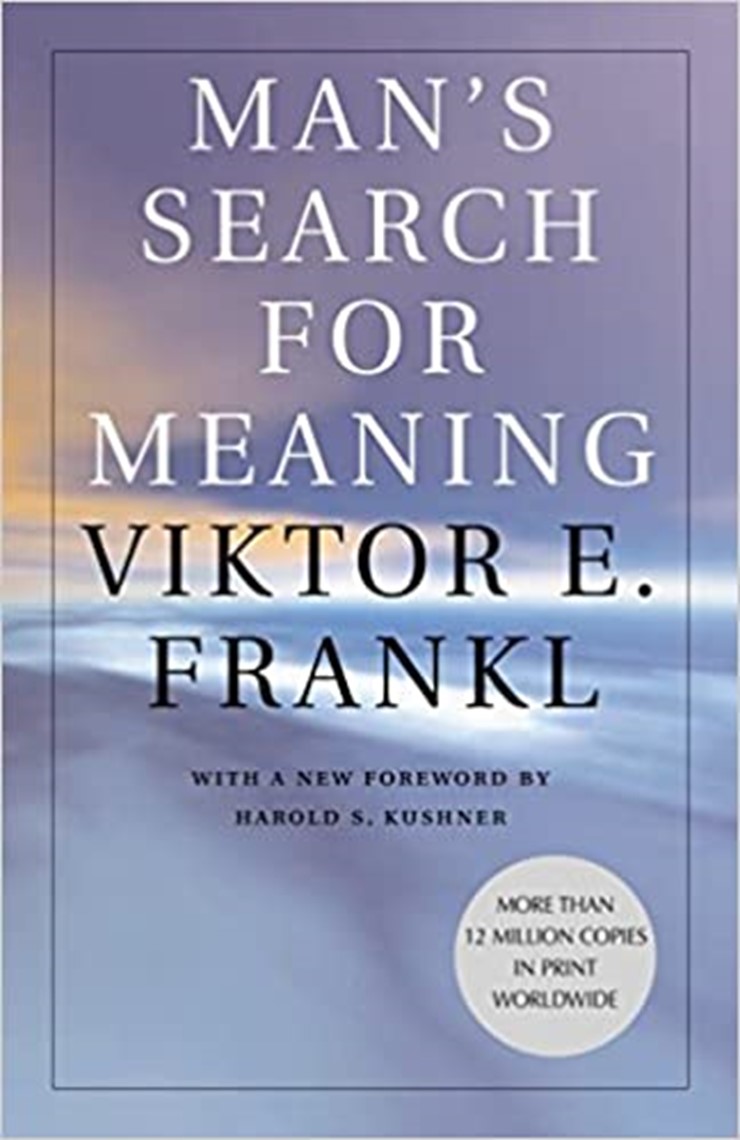
I have read a speculation that CS Lewis, in his later years, often confessed to a Catholic priest. How could this be possible? Simple, though a Catholic priest cannot bestow technical absolution on a Protestant, any Christian can pray to God to forgive another Christian.
If this were true, it may indicate that CS Lewis was more concerned with the effectiveness of his witness to all Christians, and certainly to the predominant Protestants in England. Anti-Catholic sentiment runs deep in England, particularly in decades past. One of the major English holidays is Guy Fawkes Night, where fireworks celebrate when the plot by the Catholic Guy Fawkes was foiled. Guy Fawkes threatened to blow up the House of Lords with dynamite to further the Catholic cause. [2] Also, CS Lewis was a high church Anglican, the Protestant denomination closest to Catholicism, and is the only Protestant denomination that asserts that the Apostolic Succession is preserved through the Bishop of Canterbury.
In the Preface, CS Lewis states that “the reader should be warned that I offer no help to anyone who is hesitating between two Christian denominations. You will not learn from me whether you ought to become an Anglican, a Methodist, a Presbyterian, or a Roman Catholic.” “There is no mystery of my own position. I am a very ordinary layman of the Church of England, not especially high, nor especially low, nor especially anything else.” He states he avoids discussions that divide, such as the controversies on the exact nature of the Virgin Mary, and avoiding topics like birth control.
CS Lewis compares his Mere Christianity to a central hall opening up to many rooms, representative of the various denominations, saying that this hall is a place to wait while you try the various doors.[3] Is this comparable to the imagery in the Chronicles of Narnia, where there is a wood between all worlds, where the children of London were able to hop in pools taking them to London, or to the dying world of Charn, or the new world of Narnia, where the Lion Aslan was about to begin the work of creation?[4]
CS Lewis teaches us that Christians believe that Jesus was, and is, God, and that Christ becomes alive in our hearts when we are baptized, when we believe, and when we partake of His body and blood, whether that is named Holy Communion, the Mass, or the Lord’s Supper. CS Lewis declares: “I believe this on Christ’s authority.”
CS Lewis elaborates, “Believing things on authority only means believing them because you have been told them by someone you think trustworthy. Ninety-nine percent of the things we believe are believed on authority.” For instance, Londoners believe that New York exists even if they have never been there, and believe that historical facts like the Norman Conquest and the defeat of the Spanish Armada actually happened. CS Lewis states that “ordinary people believe in the Solar System, atoms, evolution, and the circulation of blood on authority, because the scientists say so.”[5]
Catholics would argue that the next logical step in this argument is that the teachings of the Church have authority, and if they are not parsing carefully what he has written, they may assume he said that. But CS Lewis does not say that, and evangelical Christians would likely assume he is referring the authority of Scripture. How Anglicans interpret this likely depends on whether they are high church or low church.
CS Lewis frames his discussions on Catholic rather than Protestant themes, explicitly discussing the four Cardinal Virtues: Prudence, Temperance, Justice, and Fortitude. These are not controversial since they are first discussed in Plato’s Republic, Aristotle’s Nicomachean Ethics, and in Stoic philosophy, as well as St Thomas Aquinas’ commentaries on Aristotle.
CS Lewis assures his Protestant readers that “the word ‘cardinal’ has nothing to do with ‘Cardinals’ in the Roman Church. It comes from a Latin word meaning ‘the hinge of a door.’ These were called ‘cardinal’ virtues because they are ‘pivotal.’[6] CS Lewis also discusses the three Theological virtues: faith, hope, and charity, which all Christians share.[7]
AVOIDING QUARRELS BETWEEN CHRISTIAN DENOMINATIONS
How does CS Lewis begin his first Book? “Everyone has heard people quarreling.” Later he explains, “Quarreling means trying to show that the other man is in the wrong.” Christians of all denominations are quick to quarrel about this doctrine or that, but they are less interested in pondering of the two-fold Love of God and neighbor. Of all my YouTube videos, those that rank lowest are those that discuss the Decalogue!
First, CS Lewis confronts Pantheism, the belief that “God exists beyond good and evil,” a belief that was held by the Prussian philosopher Hegel,” and is the title of a famous work by Frederick Nietzsche, and possibly by the Hindus, but is a belief that is rejected by Jews, Christians, and even Muslims. CS Lewis warns us, “If you do not take the distinction between good and evil seriously, then it is easy to say that anything you find in this world is a part of God.”[8]
CS Lewis remembers why he first adopted atheism. “My argument against God was that the universe seemed so cruel and unjust.” Others have had this same question: St Augustine, in his Confessions, recounted that he spurned the Catholicism of his youth because of the question of evil, asking the question of the ages: Why do bad things happen to good people? Just as CS Lewis tried out atheism, St Augustine was initially misled into believing that the Dualist Manichean heresy provided a more logical answer to the problem of evil in the world. Likewise, this question has also led the biblical scholar Bart Ehrman to abandon evangelical Christianity.
St Augustine’s Confessions: Manichaeism, NeoPlatonic Philosophy, and Monica’s Prayers, Books 3, 4, and 5
https://seekingvirtueandwisdom.com/st-augustines-confessions-manichaeism-neoplatonic-philosophy-and-monicas-prayers/
https://youtu.be/ydskqlgZSrE
CS Lewis concludes: “Atheism is too simple. If the whole universe has no meaning, if there were no light in the universe and therefore no creatures with eyes, we should never know it was dark. DARK would be a word without meaning.”
CS Lewis observes that many atheistic and agnostic critics construct “a version of Christianity suitable for child of six and make that the object of their attack.” “I believe Christianity. It is a religion you could not have guessed.”[9]
This point was made by the influential medieval Jewish rabbi Nachminides, or Ramban, at the Disputation at Barcelona. He debated the Catholics, saying that it seems most strange that “the Creator of Heaven and Earth resorted to the womb of a certain Jewish lady, grew there for nine months and was born as an infant, and afterwards grew up and was betrayed into the hands of his enemies who sentenced him to death and executed Him.”
Ramban continues: “Afterwards, Jesus came to life and returned to his original place. The mind of a Jew, or any other person, simply cannot tolerate these assertions. You have listened all your life to the priests who have filled your brain and the marrow of your bones with this doctrine, and it has settled into you because of that accustomed habit. I would argue that if you were hearing these ideas for the first time, now, as a grown adult, you would never accept them.”[10]
Yet the logical impossibility of Divine Grace, of our Father who would send his only Begotten Son Jesus to live among us, is also a proof of its truth. God is more concerned with our Salvation than He is with the human logical consistency of His inscrutable actions.
ST AUGUSTINE CONDEMNS MANICHEE DUALISM
CS Lewis repeats St Augustine’s arguments in his Confessions against the dualist Manicheans, though he does not acknowledge his source, likely because if he did so, Protestants would reject the argument out of hand. CS Lewis writes: “Dualism means the belief that there are two equal and independent powers at the back of everything, one of them good and the other bad, and that this universe is the battlefield in which they fight out an endless war.” “One of these powers likes hatred and cruelty, the other likes love and mercy, and each backs its own view.”
Then CS Lewis repeats the classic Catholic teaching that evil has no existential existence, that evil is the absence of good, but he tinkers with the phrasing so it does not sound Catholic. “Goodness is itself: badness is only spoiled goodness.” “Evil is a parasite, not the original thing.”
CS Lewis continues, “If Dualism is true, then the bad Power must be a being who likes badness for its own sake. But in reality, we have no experience of anyone liking badness just because it is bad. The nearest we can get to it is in cruelty. But in real life, people are cruel for one of two reasons: either because they are sadists,” including sexual perverts, “or else for the sake of something they are going to get out of it: money, power, or safety. But pleasure, money, power, and safety are all, as far as they go, good things. The badness consists in pursuing them by the wrong method, or the wrong way, or too much.” “You can be good for the mere sake of goodness: you cannot be bad for the mere sake of badness.”
CS Lewis directly quotes St Augustine, but does not dare attribute this famous passage from his Confessions: “A famous Christian long ago told us that when he was a young man he prayed constantly for chastity; but years later he realized that while his lips had been saying, ‘Oh Lord, make me chaste,’ his heart had been secretly adding, ‘But Please don’t do it just yet.’”[11]
St Augustine’s Confessions, His Conversion, Baptism, St Monica’s Death, and Philosophy, Books 8 & 9
https://seekingvirtueandwisdom.com/st-augustines-confessions-his-conversion-baptism-st-monicas-death-and-philosophy-books-8-9/
https://youtu.be/Vijtjxm3Ta0
JOHN MILTON: SATAN IS OVERTHROWN IN PARADISE LOST
CS Lewis states that “Christianity thinks the Dark Power was created by God, and was good when he was created, and went wrong.” Christianity does not believe the struggle between right and wrong is “between independent powers. Christianity says it is a civil war, a rebellion, and that we are living in a part of the universe occupied by the rebel.”[12]
CS Lewis may be referring to John Milton’s classical work, Paradise Lost:
“The infernal Serpent; he it was, whose guile,
Stirred up with envy and revenge, deceived
The Mother of Mankind, what time his pride
Had cast him out from Heaven, with all his host
Of rebel Angels, by whose aid, aspiring
To set himself in glory above his peers,
He trusted to have equaled the Most High,”
“If Satan opposed; and with ambitious aim
Against the throne and monarchy of God
Raised impious war in Heaven and battle proud,
With vain attempt. Him the Almighty Power
Hurled headlong flaming from the ethereal sky,
With hideous ruin and combustion, down
To bottomless perdition; there to dwell
In adamantine chains and penal fire,
Who durst defy the Omnipotent to arms.”[13]
As you can see, John Milton is consciously crafting a Christian epic poem mirroring the majesty of the Iliad and Odyssey. CS Lewis was inspired by Milton, he concurred with his opposition of the monarchy and his support of the Commonwealth established by Oliver Cromwell, after King Charles I was beheaded.[14] This is consistent with CS Lewis’ opposition to the totalitarian Nazi state.
This means that John Milton was sympathetic with the Protestant cause championed by Oliver Cromwell. This implies that CS Lewis sought inspiration from ancient and classical sources, and that his apparent Catholic bias is because many of these ancient and classical sources predate the Protestant Reformation.
Summary of Homer’s Iliad: Warrior Culture of Ancient Greece
https://seekingvirtueandwisdom.com/summary-of-homers-iliad-warrior-culture-of-ancient-greece/
https://youtu.be/6C5znDxvpQ8
CS LEWIS ON FREE WILL, IGNORING PREDESTINATION
CS Lewis ponders free will, but he avoids discussing the extreme Calvinist doctrine of predestination, where some are preordained to be among the elect, meaning they are saved, while others are preordained to be damned. Catholics officially believe that we can only be saved through God’s grace, but that we must cooperate with God’s grace to be saved. Simply put, the question is: Are we puppets, helpless to change our fate? Catholics think not.
Why did God give us free will? CS Lewis teaches us, “free will, though it makes evil possible, is also the only thing that makes possible any love or goodness or joy worth having. A world of automata, of creatures that worked like machines, would hardly be worth creating.”[15]
CS Lewis continues: “the happiness which God designs for His higher creatures is the happiness of being freely, voluntarily united to Him and to each other in an ecstasy of love and delight compared with which the most rapturous love between a man and a woman is mere milk and water. And for that, they must be free.”[16]
CS Lewis appears to be describing what Catholics describe as the beatific vision, but avoids using these words to describe it, since Protestants avoid discussions of visions. One example is the dual vision In his Confessions of St Augustine and his mother St Monica in the garden shortly before her passing. [17]
CS Lewis describes the fall of the angels in Milton: “The moment you have a self at all, there is a possibility of putting yourself first, wanting to be at the center, wanting to be God, in fact. That was the sin of Satan: and that was the sin he taught the human race. Some people think that the fall of man had something to do with sex, but that is a mistake. The story in the Book of Genesis rather suggests that some corruption in our sexual nature followed the fall and was its result, not its cause.”[18]
How does CS Lewis respond to those who say, “I’m ready to accept Jesus as a great moral teacher, but I don’t accept His claim to be God?” CS Lewis responds, “Either Jesus was, and is, the Son of God, or else he was a madman or something worse.” We have no other choice.[19]
But the spiritual danger in clinging too tightly to this proposition is that you might downplay the moral teachings of Jesus, as His goodness, and the truth of his teachings, are central to Christianity, and are really the primary proof of His Divinity.[20]
Next, CS Lewis ponders both the Cardinal Virtues, and the Theological Virtues of Faith, Hope, and Charity, or Love, and other moral issues, including romance and Christian marriage.
Morality and the Cardinal Virtues in CS Lewis’ Mere Christianity: Prudence, Temperance, and Justice, Books 1-3
https://youtu.be/Djbzmeb2nc0
CS Lewis’ Mere Christianity: Forgiveness, Pride, and Envy. Can Pride Ever Be Good?, Book 3
https://seekingvirtueandwisdom.com/cs-lewis-mere-christianity-forgiveness-pride-and-envy-can-pride-ever-be-good/
https://youtu.be/Pmu6hzU5RaQ
Faith, Hope, Charity, and Love in CS Lewis’ Mere Christianity: The Theological Virtues, Book 3
https://seekingvirtueandwisdom.com/faith-hope-charity-and-love-in-cs-lewis-mere-christianity-the-theological-virtues/
https://youtu.be/avesW8whRSQ
CS Lewis’ Mere Christianity: Intimacy, Romance, Marriage, and Divorce, Books 2-3
https://seekingvirtueandwisdom.com/cs-lewis-mere-christianity-reflections-on-intimacy-romance-marriage-and-divorce/
https://youtu.be/fZcOip3WGe8
CS Lewis ponders whether Christianity is Hard, or Easy. Previously, we reflected on CS Lewis’ Great Divorce, on Hell and Heaven, and Viktor Frankl’s Man’s Search for Meaning, written after he survived his time in the Auschwitz work camps of World War II.
CS Lewis’ Mere Christianity: Is Living the Christian Life Hard or Easy?, Book 4
https://seekingvirtueandwisdom.com/cs-lewis-mere-christianity-is-christianity-easy-or-hard/
https://youtu.be/jZuWmInLh7s
CS Lewis’ Great Divorce, An Allegory of Hell and Plato’s Cave
http://www.seekingvirtueandwisdom.com/cs-lewis-great-divorce-an-allegory-of-hell-and-platos-cave/
St Gregory Of Nyssa on Beatitudes, Plato’s Allegory of the Cave, and CS Lewis and the Great Divorce
https://youtu.be/wuqwy3GyO_4
Viktor Frankl, Man’s Search For Meaning, His Life in a Nazi Concentration Camp in WWII
http://www.seekingvirtueandwisdom.com/viktor-frankl-mans-search-for-meaning-his-life-in-a-nazi-concentration-camp-in-wwii/
https://youtu.be/O-YtC9qGWPI
DISCUSSING THE SOURCES
CS Lewis sought to make the core theological Christian doctrines and teachings comprehensible for ordinary Christians, and he succeeded. Please review our detailed review and discussion of Mere Christianity in our initial video of Mere Christianity and the Nazi Menace.
[1] https://en.wikipedia.org/wiki/C._S._Lewis
[2] https://en.wikipedia.org/wiki/Guy_Fawkes_Night
[3] CS Lewis, Mere Christianity, from the compilation: Mere Christianity and the Screwtape Letters (HarperSanFrancisco, 2003, 1944), Preface, pp. ii-xii.
[4] CS Lewis, The Chronicles of Narnia (New York: Harper Collins Publishing, 1982, 1953), The Magician’s Nephew, Chapters 1-9.
[5] CS Lewis, Mere Christianity, Book 2, Chapter 5, The Practical Conclusion, pp. 61-62.
[6] CS Lewis, Mere Christianity, Book 3, Chapter 2, The Cardinal Virtues, pp. 76-81 and https://en.wikipedia.org/wiki/Cardinal_virtues .
[7] CS Lewis, Mere Christianity, Book 3, Chapters 9-12.
[8] CS Lewis, Mere Christianity, Book 2, Chapter 1, The Rival Conceptions of God, pp. 36-37.
[9] CS Lewis, Mere Christianity, Book 2, Chapter 2, The Invasion, pp. 42-45.
[10] https://en.wikipedia.org/wiki/Disputation_of_Barcelona
[11] CS Lewis, Mere Christianity, Book 3, Chapter 5, Sexual Morality, p. 99 and St Augustine, Confessions, translated by RS Pine-Coffin (New York: Dorset Press, 1986, 1961, originally 400 AD), Book 8, Chapter 7, p. 169.
[12] CS Lewis, Mere Christianity, Book 2, Chapter 2, The Invasion, p. 41.
[13] https://standardebooks.org/ebooks/john-milton/paradise-lost/text/book-1
[14] https://en.wikipedia.org/wiki/Paradise_Lost
[15] CS Lewis, Mere Christianity, Book 2, Chapter 3, The Shocking Alternative, p. 48.
[16] CS Lewis, Mere Christianity, Book 2, Chapter 3, The Shocking Alternative, p. 48.
[17] Phillip Cary, Augustine, Philosopher and Saint, The Great Courses, 1997.
[18] CS Lewis, Mere Christianity, Book 2, Chapter 3, The Shocking Alternative, p. 49.
[19] CS Lewis, Mere Christianity, Book 2, Chapter 3, The Shocking Alternative, p. 52.
[20] CS Lewis, Mere Christianity, Book 4, Chapter 5, Obstinate Toy Soldiers, pp. 181-182.

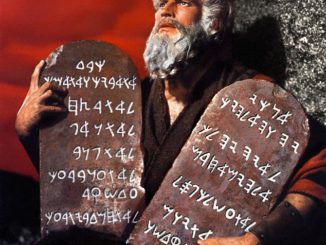
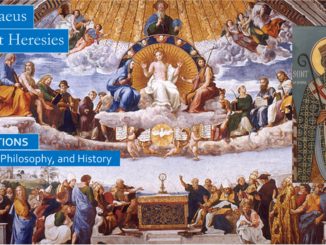
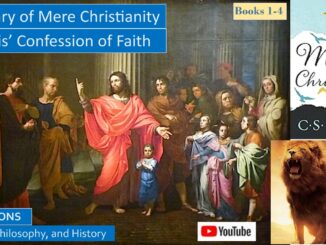
2 Trackbacks / Pingbacks